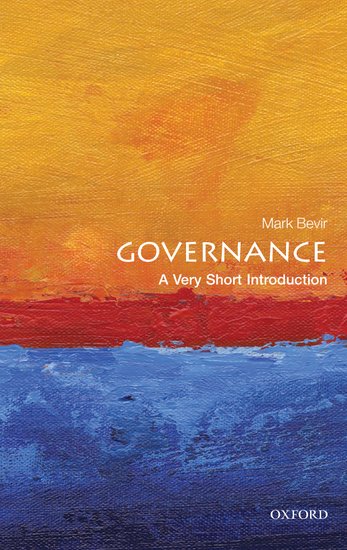A Very Short Introduction | Political Science
The Orchestra
ISBN: 9780199606412
Series: A Very Short Introduction
The Orchestra (Political Science)
A Very Short Introduction The Orchestra (Political Science) Media > Books > Non-Fiction > Education Books Expect Delays of Up to 4 Weeks| Order Below |
ISBN
9780199606412 (10-digit ISBN: 0199606412)
- Description
- Key Features
- Series Description
- Table of Contents
- Surveys the structure, roots, and day-to-day functioning of the modern philharmonic society
- Disputes prevalent notions of the death of the orchestra
- Argues for the centrality of the symphony orchestra in cultural diplomacy and civic pride
- Welcomes new media for the consumption of orchestral music
- Updates orchestral history with accounts of recent strikes and bankruptcies on the one hand, and the conspicious success of several massive new concert halls, on the other
In this Very Short Introduction, D. Kern Holoman considers the structure, roots, and day-to-day functioning of the modern philharmonic society. He explores topics ranging from the life of a musician in a modern orchestra, the recent wave of new hall construction from Berlin to Birmingham, threats of bankruptcies and strikes, and the eyebrow-raising salaries of conductors and general managers. At the heart of the book lies a troubling pair of questions: Can such a seemingly anachronistic organization long survive? Does the symphony matter in contemporary culture? Holoman responds to both with a resounding yes. He shows that the orchestra remains a potent political and social force, a cultural diplomat par excellence. It has adapted well to the digital revolution, and it continues to be seen as an essential element of civic pride. In a time of upheaval in how classical music is created, heard, distributed, and evaluated, the orchestra has managed to retain its historic role as a meeting place of intellectual currents, an ongoing forum for public enlightenment.
Reading Guide
Oxford's Very Short Introductions series offers concise and original introductions to a wide range of subjects--from Islam to Sociology, Politics to Classics, Literary Theory to History, and Archaeology to the Bible.
Not simply a textbook of definitions, each volume in this series provides trenchant and provocative--yet always balanced and complete--discussions of the central issues in a given discipline or field. Every Very Short Introduction gives a readable evolution of the subject in question, demonstrating how the subject has developed and how it has influenced society. Eventually, the series will encompass every major academic discipline, offering all students an accessible and abundant reference library.
Whatever the area of study that one deems important or appealing, whatever the topic that fascinates the general reader, the Very Short Introductions series has a handy and affordable guide that will likely prove indispensable.
Please note: As this series is not ELT material, these titles are not subject to discount.
Chapter 1: Philharmonia
Chapter 2: Musicians
Chapter 3: Venue
Chapter 4: Money
Chapter 5: Conductors
Chapter 6: Repertoire
Chapter 7: Commentary
Chapter 8: Records
Chapter 9: Peace
Epilogue: Civics
References
Further Reading
Index
In this Very Short Introduction, D. Kern Holoman considers the structure, roots, and day-to-day functioning of the modern philharmonic society. He explores topics ranging from the life of a musician in a modern orchestra, the recent wave of new hall construction from Berlin to Birmingham, threats of bankruptcies and strikes, and the eyebrow-raising salaries of conductors and general managers. At the heart of the book lies a troubling pair of questions: Can such a seemingly anachronistic organization long survive? Does the symphony matter in contemporary culture? Holoman responds to both with a resounding yes. He shows that the orchestra remains a potent political and social force, a cultural diplomat par excellence. It has adapted well to the digital revolution, and it continues to be seen as an essential element of civic pride. In a time of upheaval in how classical music is created, heard, distributed, and evaluated, the orchestra has managed to retain its historic role as a meeting place of intellectual currents, an ongoing forum for public enlightenment.
Reading Guide
Key Features
- Surveys the structure, roots, and day-to-day functioning of the modern philharmonic society
- Disputes prevalent notions of the death of the orchestra
- Argues for the centrality of the symphony orchestra in cultural diplomacy and civic pride
- Welcomes new media for the consumption of orchestral music
- Updates orchestral history with accounts of recent strikes and bankruptcies on the one hand, and the conspicious success of several massive new concert halls, on the other
Series Description
Oxford's Very Short Introductions series offers concise and original introductions to a wide range of subjects--from Islam to Sociology, Politics to Classics, Literary Theory to History, and Archaeology to the Bible.
Not simply a textbook of definitions, each volume in this series provides trenchant and provocative--yet always balanced and complete--discussions of the central issues in a given discipline or field. Every Very Short Introduction gives a readable evolution of the subject in question, demonstrating how the subject has developed and how it has influenced society. Eventually, the series will encompass every major academic discipline, offering all students an accessible and abundant reference library.
Whatever the area of study that one deems important or appealing, whatever the topic that fascinates the general reader, the Very Short Introductions series has a handy and affordable guide that will likely prove indispensable.
Please note: As this series is not ELT material, these titles are not subject to discount.
EASY ORDER FORM
PRICES LISTED INCLUDE CONSUMPTION TAX
Price Before Tax:
¥1,790


